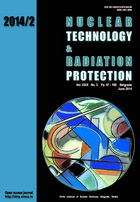
THE UKRAINIAN PILOT PROJECT “STOP RADON”
Pages: 142-148
Authors: Tatyana Pavlenko, Olga German, Miroslava Frizyuk,
Nikolay Aksenov, and Anatoliy Operchyuk
Abstract
In 2010 one area of Ukraine (Kirovograd area) was selected for a pilot project to reduce radon risks. The project consists of several stages: radon risk training for the public health professionals, measurements of radon concentration in schools and nurseries (more than 1000 buildings were examined), justifications of radon countermeasures and their implementation. The lognormal frequency distribution for equivalent equilibrium concentration was authentically established. The geometric mean of the indoor radon equivalent equilibrium concentration was established to 63 Bq/m3, and standard deviation is equal to 82 Bq/m3. The indoor radon equivalent equilibrium concentration ranged from 22 Bq/m3 to 809 Bq/m3. It was found that the national regulatory limit for this type of buildings was exceeded in more than 50% of the cases. The second phase of the project has a goal to remediate radon levels and reduce radon risks. Calculated exposure doses and radon risk were used to justify the remediation and assess the economic loss for the region caused by radon irradiation of the population.
Key words: Ukraine, radon, radiological risk, effective dose
FULL PAPER IN PDF FORMAT (803 KB)
